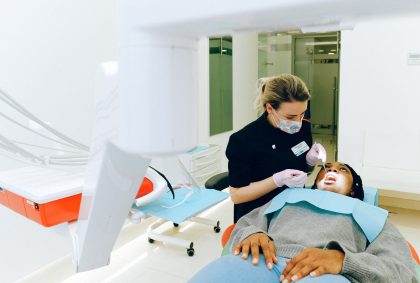Another Exciting Question Is How To Become A Dentist And What Are The Prerequisites For This.
First of all, it should be said that the university entrance qualification as well as a degree are necessary in order to be able to take up the profession of dentist. There are also state-recognized apprenticeships such as dental technician or jobs such as dental assistant that do not have a high school diploma or university degree can be reached, but this article focuses on the dentist himself.
The right course for this is called dentistry. As a rule, it takes eleven semesters to pass the state examination, some of which include practical courses and seminars, so that the acquired knowledge can be put into practice. This is intended to get to know everyday professional life. Basically, it should be noted at this point that studying and later also working as a dentist requires a natural scientific talent and a certain degree of intelligence. You should be aware that studying dentistry is very time-consuming and complex, especially when compared to other courses.

How Do I Become A Dentist?
Whether prophylaxis, tooth cleaning or root canal treatments – dentists face a wide variety of challenges every day. To become a dentist, you must first study dentistry. After 10 to 11 semesters, you will complete this with the state examination and have the permission to call yourself a dentist in the future. In order to be able to practice the profession, you have to apply for a license to practice medicine from the competent authority. At the beginning of your career, you will usually gain practical experience as an assistant doctor for 2 to 4 years with the aim of obtaining approval for health insurance. This entitles you to treat private as well as statutory health insurance patients.
Dentist Legal Aspects
As an employed dentist, there are some legal aspects of the profession that should be considered. This includes, among other things, the duty to inform as an employed dentist. If a dentist acts without the patient’s consent, he will in the worst case be liable to prosecution, which can ultimately be interpreted as an offense of bodily harm. The consequence of this duty to provide information is therefore that an employed dentist obtains the patient’s consent before the dental treatment measure, whereby the unlawful physical injury is converted into a legitimate dental treatment measure with a formal act.
The dentist vacancies do not explicitly show such legal aspects, but they must always be taken into account. In addition to the duty to provide information, medical emergencies are a factor that makes up an essential legal aspect of the dental profession. It makes a lot of sense to attend further training courses outside of the required qualifications and to gain further qualifications in order to be able to react appropriately and appropriately to relevant emergency situations.
The dentist, as a trained medical professional, has significantly greater duties to act during an emergency than the general citizen. If an emergency situation arises, the dentist must take appropriate steps or, if necessary, consult another doctor if the spectrum of the emergency goes beyond his own competence.
In this blog post, various aspects of the dental profession were discussed. On the one hand, it was explained what the duties of a salaried dentist are, how to become a dentist and what skills are necessary, and on the other hand, the various legal aspects were discussed. All in all, job offers for dentists are characterized by variety.
